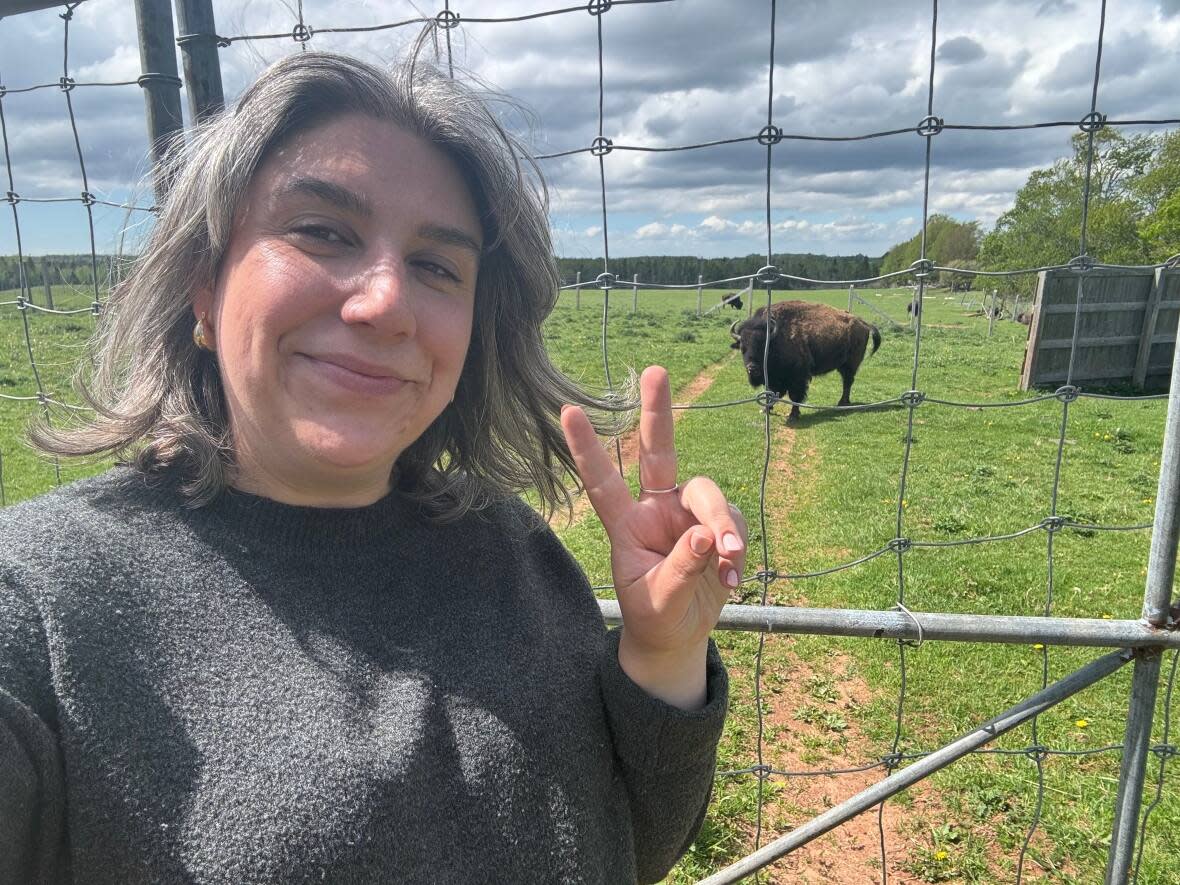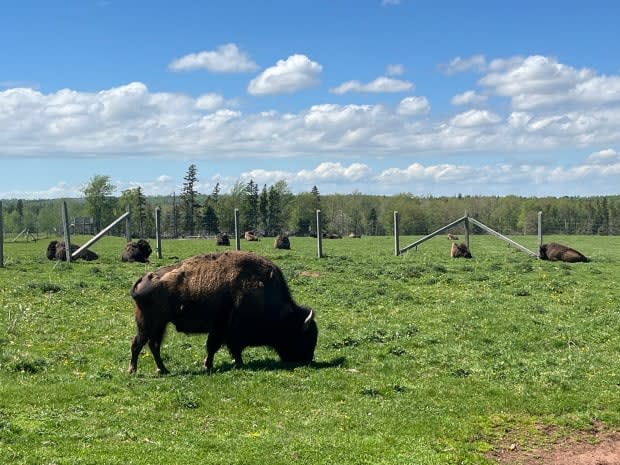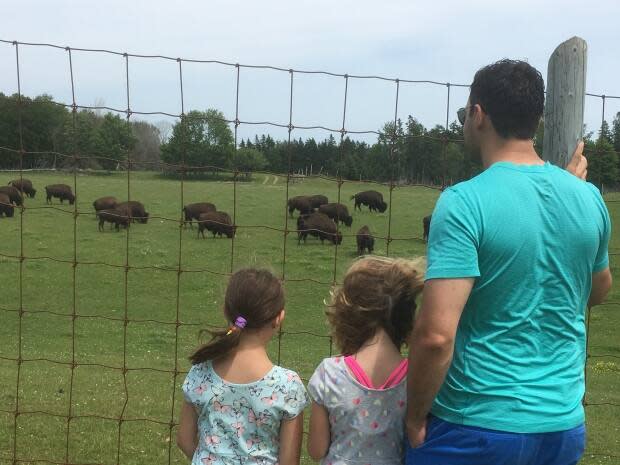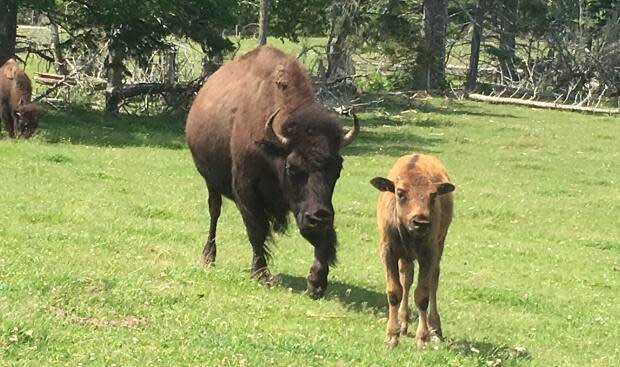Baffled by buffaloes on P.E.I.? Let us explain

This story is from this week's episode of the new CBC podcast Good Question, P.E.I. Listen here.
Good Question, P.E.I. is available on the CBC Listen app, or wherever you get your podcasts.
Alberta could have given us a few barrels of oil. Maybe some wheat. Or some of those thick T-bone steaks we hear about.
Really, a cake would have sufficed.
But nooooo.
Instead, as a gift for Prince Edward Island's centennial celebrations in 1973, the province of Alberta sent 15 buffaloes — seven males and eight females — across the country by train, ferry and truck to their new home in Milltown Cross, in P.E.I.'s Kings County.
They've been raising the eyebrows of anyone who drives by ever since, given how out of place they look among the sandy beaches and red potato fields of P.E.I.
Even the provincial government seemed baffled by the buffaloes, unsure of what to do with the unusual gift, especially as the years went on.

William McGuigan remembers watching the buffaloes as a kid growing up in eastern P.E.I. He was curious to learn more, so he reached out to the CBC podcast Good Question, P.E.I.
He came to the right place. It's a quirky story we've been covering for years — when they were first presented in 1973, when the government decided in 2012 that it couldn't keep spending $30,000 a year to maintain them, when some of them escaped from the wire-fenced pasture.
And of course, when the Buddhist not-for-profit organization Moonlight International Foundation bought them, and Buffaloland Park, for $1.
That's when things got interesting. Buddhists, by nature of their religion, are taught never to harm any live creature. They won't even boil a lobster, so they weren't about to continue the province's practice of culling the herd of buffaloes. Waiting for them to die naturally was one option, but the herd was now more than 50 and growing.
They decided castrating the males was the best option. Easy peasy.
Well, not quite.
"It's very stressful to round them up, that's the problem," Dr. David Lister, a veterinarian with New Perth Animal Hospital, said in an interview with CBC News in 2018.
Lister and his team were given the job of identifying the males, tranquilizing them and castrating them.

That plan didn't fly with at least one of the males, who managed to elude capture and go on to impregnate five females.
But the other castrations have managed to slow the population growth. In an email to CBC News last week, Moonlight International Foundation said there might be only one or two left to do.
Buffaloland remains a nondescript place where people can watch the animals for free, seven days a week. It's not fancy, just a 40-hectare plot of land with a small barn. You might miss it if you didn't look to the side and do a double-take.

You might not even see another human there, depending on the time of day.
The buffaloes are fenced in, but beware if you try to feed them, Lister said.
They are not always friendly, though the males at least are not as frisky as they once were.
Have a question for an episode? Good Question, P.E.I. wants to hear from you!
Email goodquestionpei@cbc.ca or call our Talkback line at 1-800-680-1898.
More stories from the Good Question, P.E.I. podcast:


